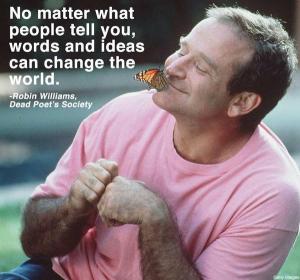I had two evening events in my diary last week, a CIPD event and a Cardiff Business Club dinner. In my head the CIPD event was on Wednesday and the dinner on Thursday. It turned out that I was wrong, leading to a dress code faux pas.
I got home earlier than expected on Wednesday following a mediation so I decided to change from my business dress (albeit fairly casual business dress) into what might be called “smart casual”. I knew that would not be an issue at a CIPD event where there would be a diverse group of people and no formality. I duly arrived at the Village Hotel only to find an ACCA event on.
I was obviously in the wrong place and on checking my diary realised that I should be at the Cardiff business Club dinner at St David’s Hotel. I did not have time to go back home and change again so I had two options:-
a) go and front it out; or,
b) waste the hard-earned cash used to pay for my place and go home.
I did seriously consider option b) but concluded that this was cowardly and stupid and therefore I would go.
So I turned up in a pair of jeans, with some very nice sparkly shoes (as shown). Fortunately I had a long dress coat as well which hid some of my outfit. However in no way did my outfit fit the very formal dress code required; I was very much in the wrong trousers.
I apologised for my appearance on arrival and explained the mix up and was told not to worry. I did however feel like a complete idiot and felt very uncomfortable and embarrassed all evening. I was not my usual chatty self and I did not circulate as I would do normally but tried to slink into corners and speak to people I knew well. Matters were not helped by my being on one of the top tables near the front and sat next to the secretary who had the job of reminding everyone about the dress code.
The whole evening was excruciating and I could not help wishing that I had taken option b). I cannot remember feeling quite so uncomfortable at an event ever. This was really quite strange as I am not what you would call a shrinking violet. So this got me thinking how appearance really does matter in a number of ways
- First impressions count. As soon as we meet someone we immediately make a large number of judgements and assumptions based on their appearance. I sometimes do an exercise in my training to illustrate this. Before introducing myself I ask the delegates to jot down answers to a number of questions; for example, how old am I, where do I live, what car do I drive, what music do I like etc. The answers are illuminating (although strangely all answer 21 for the first question). Studies show that these first impressions occur within the first 5-7 seconds of meeting and if the assumptions we have made turn out to be wrong it takes another 20 further experiences with the person to correct our first impressions. In many situations you will of course not get such an opportunity. So we do need to take care to make our first impressions really count; not something I achieved on Wednesday.
- Establishing rapport. Appearance also matters in establishing rapport. If I were to turn up to a mediation in certain environments in a formal business suit this may well prevent me establishing rapport quickly and effectively. My appearance is likely to set a barrier to establishing rapport which helps parties to feel that there is a safe environment where they can be open and honest and trust in my role as a mediator and the process. If I am in formal business dress and the parties to the mediation are not then they are likely to feel uncomfortable and I will not connect with them in the same way as I might do otherwise. So I always think carefully about matching my dress to the situation and the people I am meeting. (I am of course making stereotypical assumptions when doing this).
- Impacts on how we feel. Appearance impacts on how we ourselves feel; how confident or uncomfortable we are in a situation. If our appearance does not match the occasion and those around us then it will affect us, however much we might think it will not and should not. Maybe there are some really confident mavericks out there who would not be effected in this situation. However I suspect that many people in my position on Wednesday would have taken option b) and not gone to the event and I myself was surprised just how much it impacted on how I felt and behaved.
- Creates a barrier. Not having the “right” appearance where there are set dress codes may set up such barriers that this leads to people excluding themselves from certain events or occasions which could be damaging to encouraging open and diverse forums.
The result of all this for me will be consign my jeans and sparkly shoes to those occasions when I know they are absolutely acceptable and to check my diary more carefully in the future.
 New year is a good time for both reflection and resolution. This year I have not made any resolutions but I have spent some of my down time reflecting on how both I and my business have grown and developed over the past four years.
New year is a good time for both reflection and resolution. This year I have not made any resolutions but I have spent some of my down time reflecting on how both I and my business have grown and developed over the past four years.




